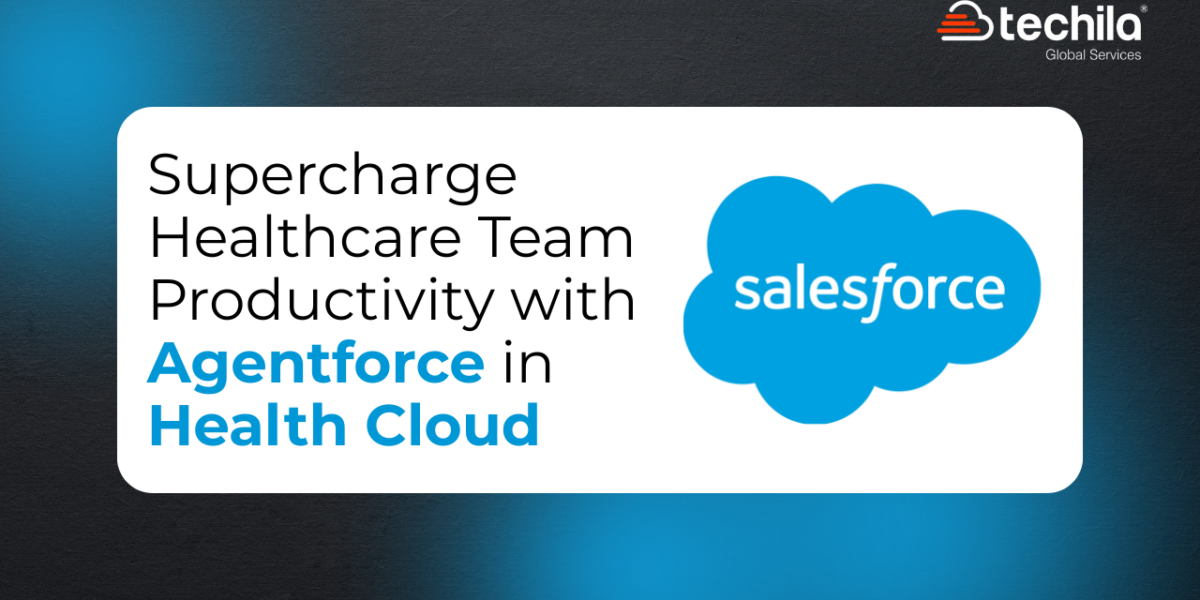Businesses constantly seek innovative ways to understand their customers better and deliver personalised experiences that drive engagement and loyalty in a hyper-competitive market. Salesforce Data Cloud emerges as a game-changing solution, offering a unified platform to integrate, harmonise, and activate data across multiple sources.
This blog explores how Harnessing Data Cloud in Salesforce can significantly enhance customer insights, empowering companies to make informed decisions, improve customer satisfaction, and drive sustainable growth.
The Evolution of Salesforce Data Cloud
Salesforce Data Cloud is not just another product in the Salesforce ecosystem; it’s the culmination of years of innovation and strategic development. Introduced initially as Customer 360 in 2019, the platform has undergone several iterations Customer 360 Audiences, Salesforce CDP, Genie, and finally, Salesforce Data Cloud. Each phase represents a step forward in Salesforce’s mission to provide a robust, integrated solution for data management, ultimately leading to the sophisticated and powerful tool we have today.
What is Salesforce Data Cloud?
Salesforce Data Cloud is a potent tool that combines disparate data sources into a unified, accessible platform. Built on Salesforce’s Einstein 1 Platform, it provides a 360-degree view of the customer by harmonising data from internal systems, external data lakes, and various third-party sources. This unified data model enables businesses to access real-time customer insights, driving personalised interactions across marketing, sales, and service channels.
Key Features of Salesforce Data Cloud
- Unified Data Model: Salesforce Data Cloud merges structured and unstructured data from various sources, creating a single, holistic view of each customer. This model eliminates data silos and enhances data accessibility across departments.
- Real-Time Data Processing: The platform processes data in real-time, enabling businesses to respond to customer behaviours and preferences as they happen. This capability is crucial for delivering timely and relevant customer experiences.
- Advanced AI Integration: Harnessing Salesforce’s AI capabilities, Data Cloud provides predictive analytics and personalised recommendations, helping businesses anticipate customer needs and tailor their offerings accordingly.
- Scalable Microservices Architecture: Salesforce Data Cloud’s scalable architecture ensures that companies can handle large data sets efficiently, making it suitable for enterprises of all sizes.
Harnessing Data Cloud to Enhance Customer Insights
Unifying Data for a 360-Degree Customer View
One of Salesforce Data Cloud’s primary advantages is its ability to unify data across various sources, providing a comprehensive view of the customer. By integrating data from CRM systems, web interactions, social media, IoT devices, and more, businesses can create detailed customer profiles that reveal past behaviours and future preferences and intentions.
Real-Time Customer Insights
In today’s fast-paced environment, real-time insights are critical for staying ahead of the competition. Salesforce Data Cloud processes data as generated, allowing businesses to react to customer actions immediately. Whether a potential lead is browsing a product page or a customer is interacting with a service representative, Data Cloud ensures that businesses have the most up-to-date information at their fingertips.
Enhancing Marketing Strategies with Data Cloud
Salesforce Data Cloud empowers marketing teams to create more personalised and effective campaigns. Marketers can segment audiences more accurately by analysing real-time customer data, tailoring messaging to individual preferences, and optimising campaign performance. This leads to higher engagement rates, improved ROI, and stronger customer relationships.
Predictive Analytics and AI-Driven Decisions
Salesforce Data Cloud goes beyond simply unifying data; it leverages AI to unlock deeper insights and predict future trends. With predictive analytics, businesses can anticipate customer needs, identify potential risks, and uncover growth opportunities. For example, AI-driven models can predict which products a customer will likely purchase next, enabling sales teams to offer targeted recommendations and promotions.
Automating Workflows for Improved Efficiency
Efficiency is critical in today’s business landscape, and Salesforce Data Cloud helps automate workflows based on real-time data insights. Whether triggering a follow-up email after a customer interaction or routing a service request to the appropriate team, automation ensures that processes are streamlined, reducing the time and effort required to manage customer relationships.
Facilitating Cross-Team Collaboration
One of the challenges many businesses face is the need for more collaboration between different departments. Salesforce Data Cloud addresses this issue by providing a unified platform where all teams marketing, sales, service, and more can access the same customer data. This alignment ensures that every team member consistently understands the customer, leading to more coordinated and effective strategies.
The Benefits of Salesforce Data Cloud for Businesses
Driving Personalisation at Scale
Personalisation is no longer a luxury; it’s a necessity. Customers desire businesses to understand their needs and deliver tailored experiences across every touchpoint. Salesforce Data Cloud lets companies personalise interactions at scale, using real-time data to create customised offers, recommendations, and communications that reverberate with each customer.
Improving Customer Retention and Loyalty
By Harnessing Salesforce Data Cloud’s comprehensive insights, businesses can proactively address customer needs, reducing churn and increasing loyalty. For example, suppose Data Cloud identifies a customer at risk of leaving due to a negative experience. In that case, the business can immediately resolve the issue and retain the customer.
Enhancing Sales Effectiveness
Sales teams can significantly benefit from the insights provided by Salesforce Data Cloud. With access to detailed customer profiles, sales representatives can tailor their gradients to align with the customer’s preferences and needs, increasing the chances of closing a deal. Data Cloud’s predictive analytics can also help identify upsell and cross-sell opportunities, driving revenue growth.
Optimising Customer Service Operations
Customer service is a critical component of the customer experience, and Salesforce Data Cloud helps optimise service operations by providing a complete view of the customer. Service representatives can access all relevant data, including purchase history, past interactions, and feedback, enabling them to resolve issues more efficiently and provide a higher level of service.
Enabling Data-Driven Decision Making
In today’s data-driven world, making decisions based on intuition alone is no longer sufficient. Salesforce Data Cloud empowers businesses to make informed decisions backed by real-time data and predictive analytics. Whether it’s determining the best time to launch a new product or identifying trends in customer behaviour, Data Cloud provides the insights needed to make strategic decisions that drive business success.
Enhancing Data Security and Compliance
With the increasing significance of data privacy and security, Salesforce Data Cloud offers robust features to protect sensitive customer information. The platform is designed to comply with global data protection regulations, ensuring that businesses can manage customer data responsibly and maintain customer trust.
The Role of Salesforce Data Cloud Across Industries
- Financial Services
Understanding customer behaviour and preferences is crucial for delivering personalised experiences in the financial services industry. Salesforce Data Cloud enables financial institutions to unify data from banking systems, insurance platforms, and customer interactions, providing a comprehensive view of each client. Financial advisors can offer tailored recommendations and services that meet their client’s unique needs.
- Healthcare and Life Sciences
Personalisation is equally vital in healthcare, where patient engagement and satisfaction are essential drivers of success. Salesforce Data Cloud helps healthcare providers unify patient data from electronic health records (EHRs), IoT devices, and other sources, enabling them to deliver personalised care and improve patient outcomes. Additionally, the platform’s AI capabilities can predict patient needs and identify opportunities for preventive care.
- Retail and Consumer Goods
Delivering personalised shopping experiences is essential for driving customer loyalty and increasing sales in the retail industry. Salesforce Data Cloud allows retailers to unify data from online and offline channels, providing a 360-degree view of the customer. This enables retailers to offer personalised promotions, product recommendations, and loyalty programs that reverberate with individual shoppers.
- Manufacturing
Manufacturing companies can leverage Salesforce Data Cloud to gain insights into customer demand and optimise their supply chain operations. By unifying data from sales, production, and distribution systems, manufacturers can better understand market trends, forecast demand, and ensure that products are delivered to customers on time.
- Telecommunications
Customer experience is a key differentiator in the telecommunications industry. Salesforce Data Cloud enables telecom companies to unify data from billing systems, customer support interactions, and network usage, providing a complete view of the customer. This allows telecom providers to deliver personalised offers, proactively address service issues, and improve customer satisfaction.
- Automotive
The automotive industry is rapidly developing, with a growing emphasis on connected vehicles and personalised experiences. Salesforce Data Cloud helps automotive companies unify data from driver interactions, vehicle telemetry, and dealership systems, enabling them to offer personalised services, such as maintenance reminders, targeted marketing campaigns, and customised financing options.
Challenges and Considerations When Implementing Salesforce Data Cloud
- Data Integration Complexity
While Salesforce Data Cloud offers robust data integration capabilities, implementing the platform can be complex, especially for large enterprises with multiple data sources. Businesses must carefully plan their data integration strategy, ensuring that all relevant data is accurately mapped and harmonised within the platform.
- Ensuring Data Quality
The effectiveness of Salesforce Data Cloud depends on the quality of the data it processes. Businesses must prioritise data governance and quality management, ensuring that the data is accurate, up-to-date, and free from inconsistencies. This requires ongoing efforts to cleanse and validate data across all sources.
- Aligning Cross-Departmental Goals
For Salesforce Data Cloud to deliver its full potential, cross-departmental teams must be aligned in their goals and strategies. This requires a collaborative approach to data management, where all teams work together to ensure that the data is being used effectively to drive business outcomes.
- Cost and Resource Management
Implementing Salesforce Data Cloud requires a significant investment in time and resources. Businesses must consider the costs associated with data integration, platform customisation, and ongoing management. Additionally, allocating the necessary resources, including skilled personnel, is essential to manage the platform effectively.
- Scalability and Performance
As businesses grow, their data needs will evolve, and the scalability of Salesforce Data Cloud becomes a critical factor. Organisations must ensure the platform can handle increasing data volumes and complexity without compromising performance. Regular assessments and optimisations may be required to maintain the platform’s efficiency.
Wrap up
Salesforce Data Cloud symbolises a significant advancement in data integration and management, offering businesses a powerful tool to enhance customer insights and drive personalised experiences. By unifying data from various sources, providing real-time insights, and leveraging AI-driven analytics, Data Cloud empowers corporations to make informed decisions, enhance customer satisfaction, and achieve sustainable growth.

 +1 561 220 0044
+1 561 220 0044 +61 255 646464
+61 255 646464 +91 909 080
3080
+91 909 080
3080

